Are You Afraid of Sharks? Don’t Be!
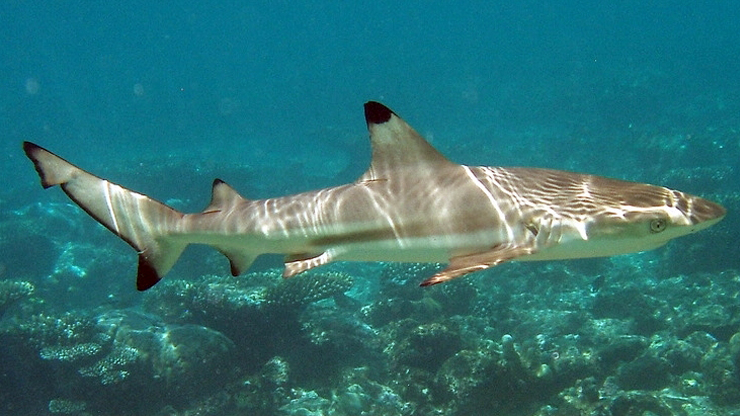
Instead, celebrate them as magnificent predators crucial to the health of oceans—before it’s too late.
There are moments in life that take your breath away. Not the best idea when scuba diving, however hard to avoid when the moments involve looking into the eyes of sharks. I had one such moment lined up in the current alongside a dozen gray reef sharks on the ocean floor of the south pass in Fakarava, deep in the islands of French Polynesia. This moment, as we all basked in the flow together, changed not just the way I felt about sharks but extinguished a level of fear that I had regarding the ocean. Me, a child of the 80s, raised knowing only the sharks in the movie Jaws, was flabbergasted that these sharks were not tearing me to pieces.
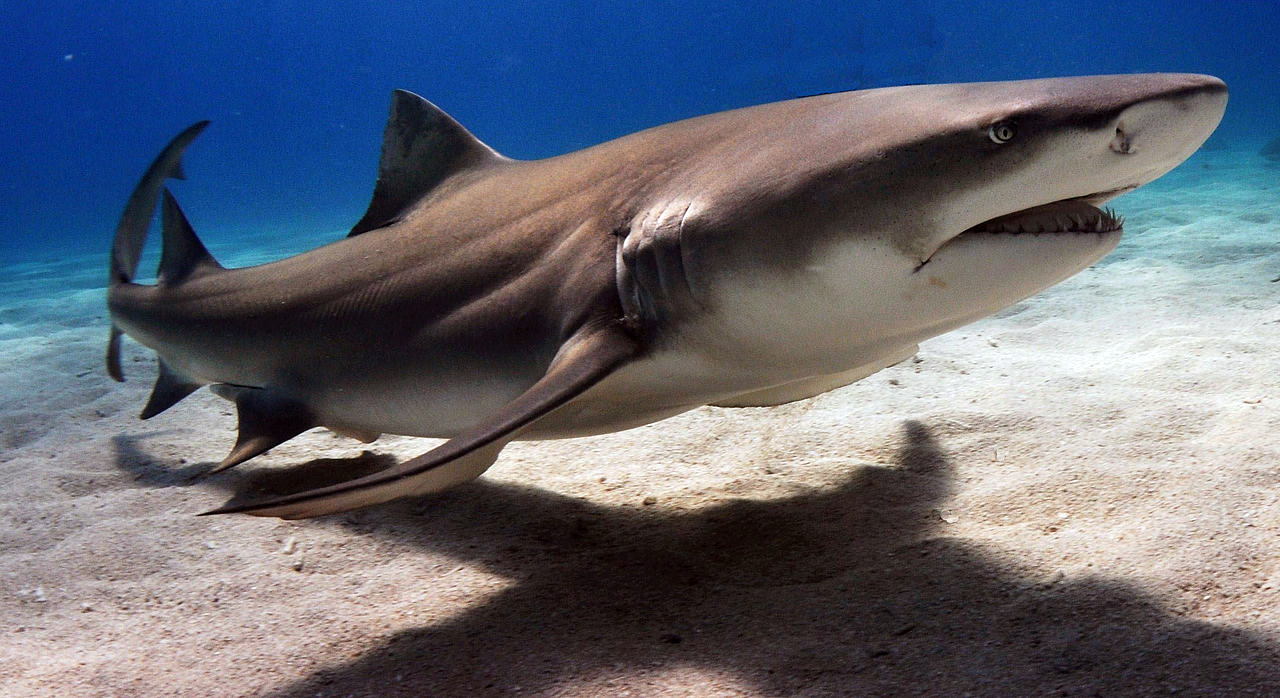
But Jaws was not a documentary. Has a forty-year-old fictional movie shaped your perception of sharks and your experience in the ocean? What is it about these creatures that evokes such a feeling of imminent disaster, as if death is lurking around the corner with a bare mention of this species of the deep dark blue? Clearly, it’s a stunning case of an unexpected PR campaign gone bad for this magnificent but maligned creature who holds a top tier in the ocean’s mighty food chain. Sharks are the most misunderstood animals in the ocean, possibly on our planet.
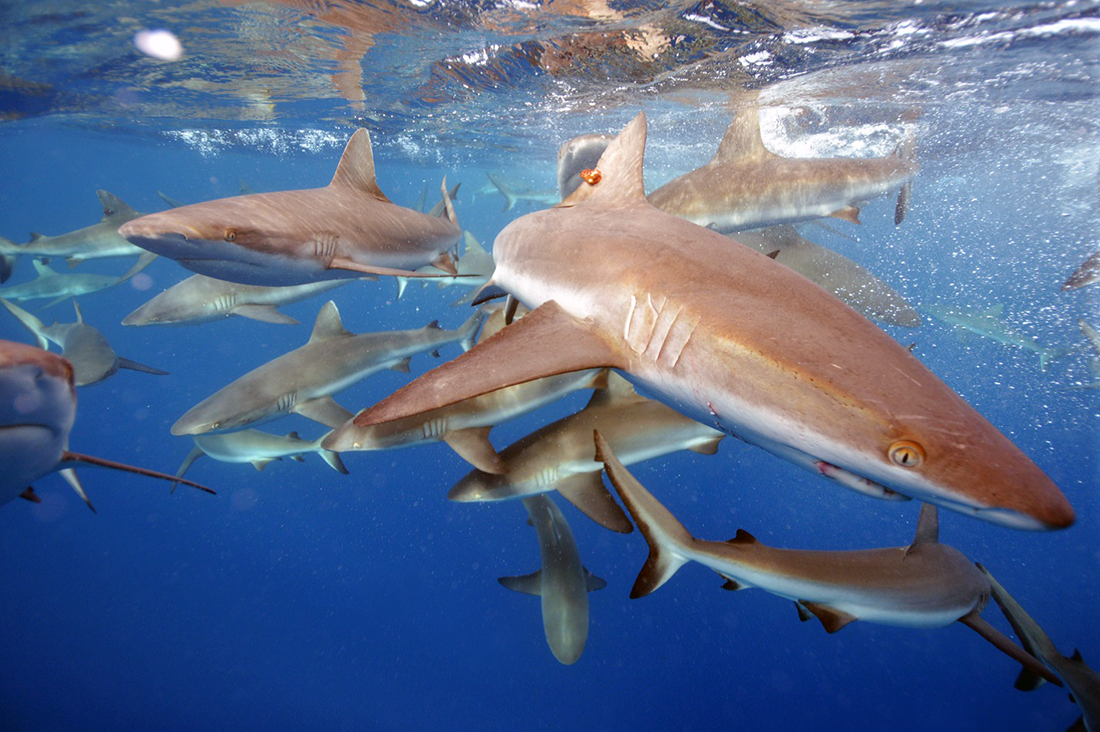
My attitude about sharks conformed to popular opinion before I started scuba diving: “They. Will. Eat. Me.” Swimming, kite surfing, and exploring shallow reefs always had a twinge of danger lurking just below the surface of my consciousness—would I be shark-bait today? When I started diving, I realized that scuba divers were obsessed with seeing sharks. People actually traveled the world hoping that the next dive would answer their prayers: they would see a shark. I was intrigued.
How could one animal that populates almost every ocean on earth engender such disparate reactions? At one end of the reaction spectrum you have people who are so afraid of a possible encounter with a shark that they will not dip a toe in the ocean. At the other, there are shark enthusiasts who will go to great lengths just to catch a glimpse of these apex predators of the sea.

We learn by observation, so I slowly began to fall in line behind the scuba divers–inching closer and closer to observe sharks in their natural environment. Armed with a slew of eye-opening facts that I fervently hoped were true, I attempted to put aside my fearful preconceptions. I took solace in hearing things like: you have a greater chance of being killed by bee stings, falling coconuts, or struck dead by lightning than being killed by a shark.
Now running on reason rather than fear, I went in search of sharks and soon enough, found myself surrounded by hundreds of them, in one of the world’s most celebrated shark sanctuaries: the south pass of Fakarava Atoll in the Tuamotu Archipelago of French Polynesia. Fakarava, the second largest atoll in the Tuamotus and a UNESCO Biosphere Reserve, has a narrow pass on the south side that is only 200 meters wide and said to hold up to 750 resident sharks and the largest density of spawning grouper on the planet. The narrow pass creates a unique marine environment with the transition between pelagic (open sea) and lagoonal life as outgoing tides deliver a mass of food—from plankton to fish of many sizes—to more than satisfy the sharks and their prey.
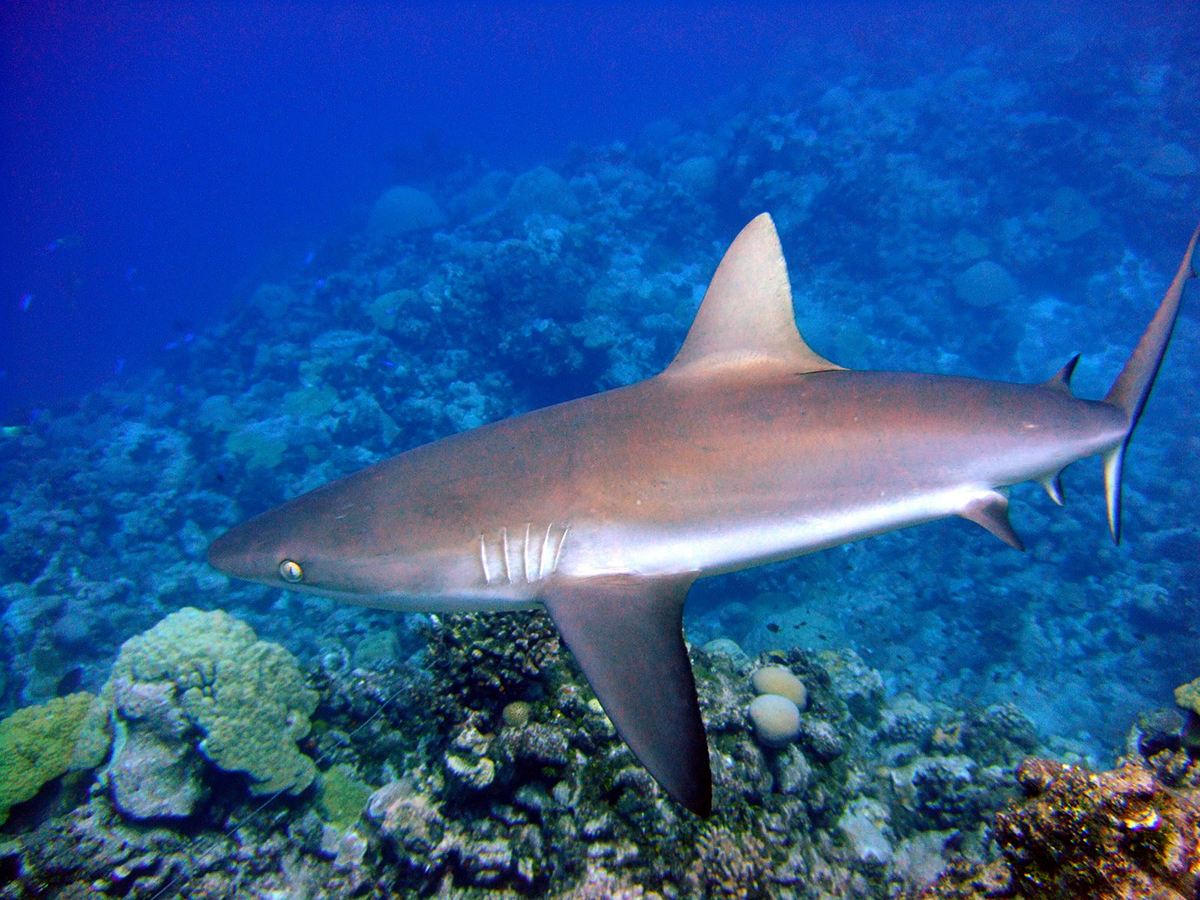
Read More: FULL Article at:
https://blogs.scientificamerican.com/observations/are-you-afraid-of-sharks-dont-be/
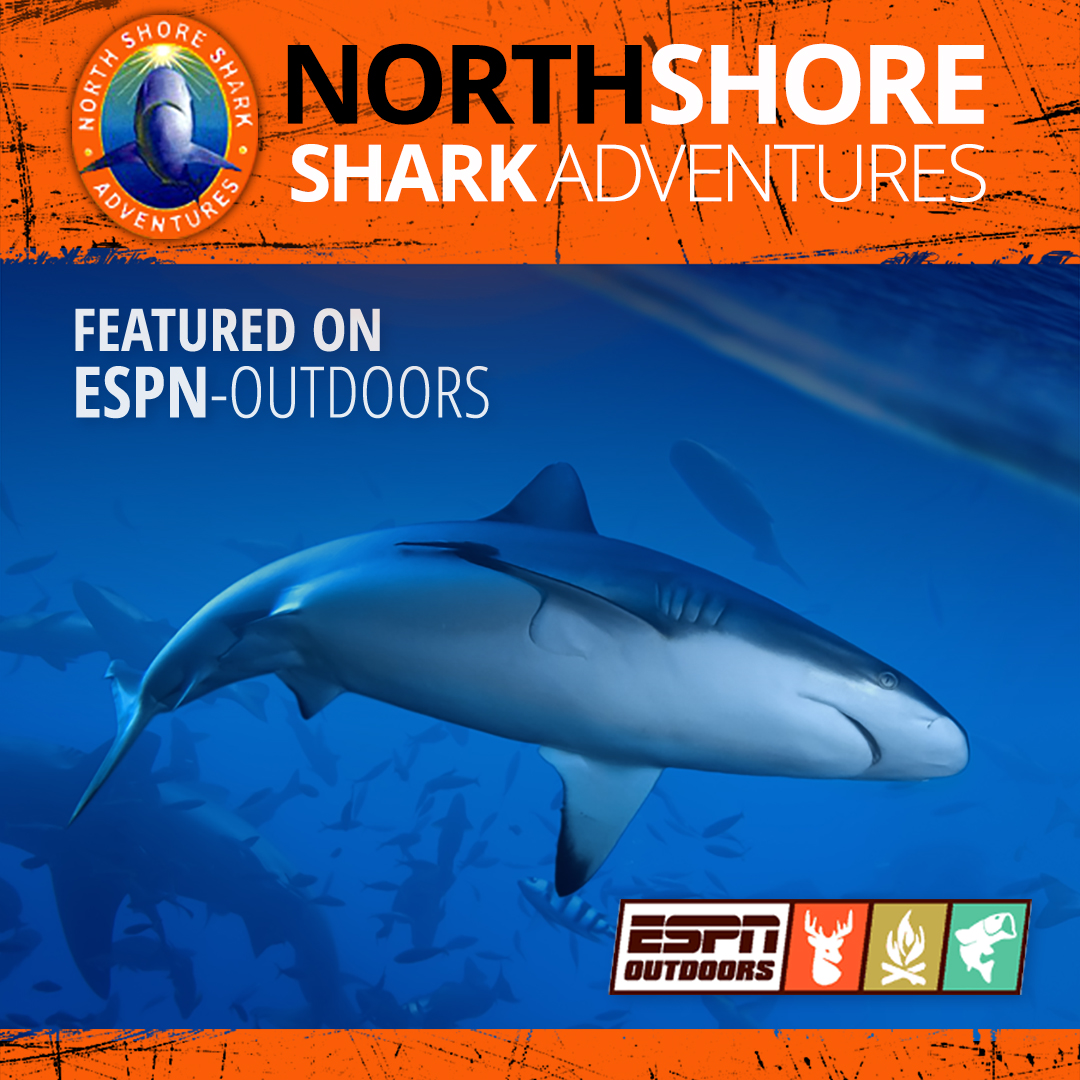
NORTH SHORE SHARK ADVENTURES
Haleiwa Harbor
66-105 Haleiwa Rd
Haleiwa, HI 96712
Call 808.228.5900
